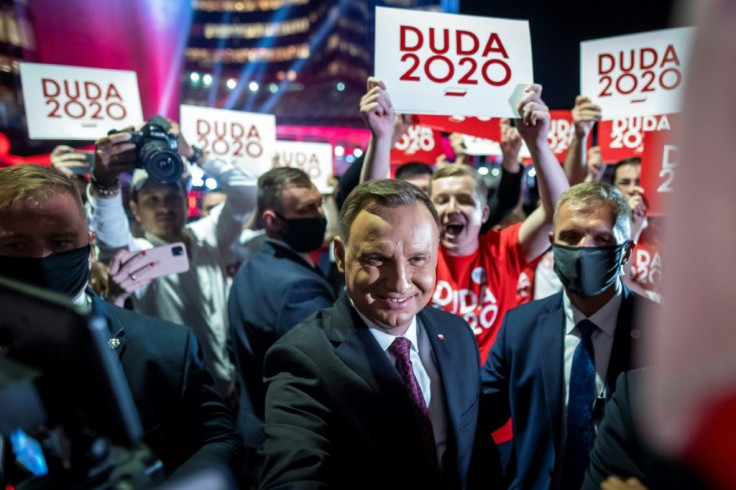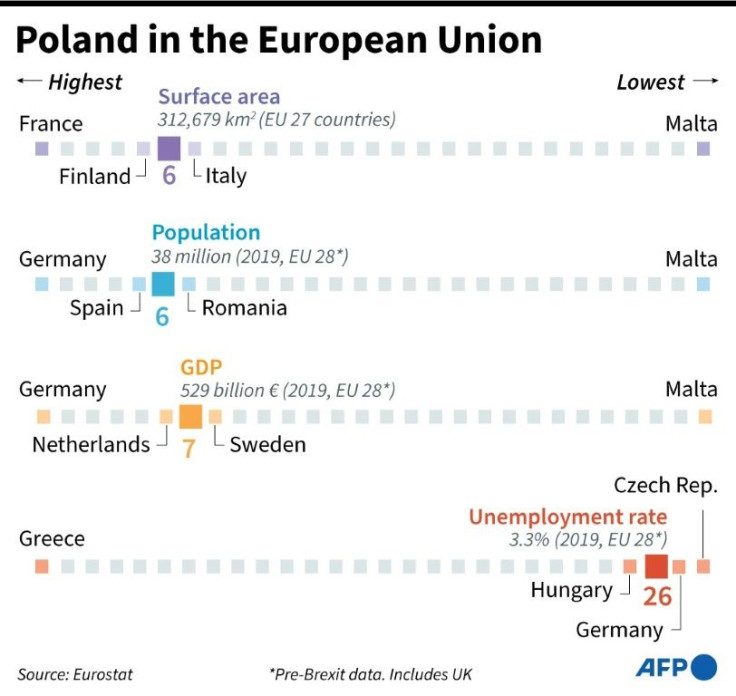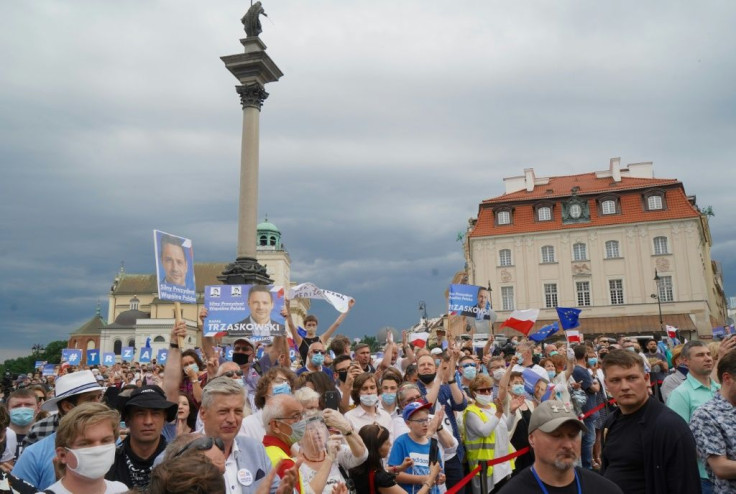Polish Populists Tested As Country Votes

The future of Poland's populist right-wing government hung in the balance as Poles voted on Sunday in round one of a tight presidential race that was delayed because of the coronavirus pandemic.
The frontrunner is incumbent Andrzej Duda, 48, who is backed by the governing Law and Justice (PiS) party.
Duda is seen as a key ally by US President Donald Trump but his policies have raised hackles in the European Union.
Polls indicate the first round will prove inconclusive and there will be a neck-and-neck run-off on July 12 between Duda and Warsaw Mayor Rafal Trzaskowski, a liberal from the Civic Platform (PO) opposition party.
The campaign has been dominated by concerns over democracy and bread and butter issues as Poland faces its first recession since the end of communism.
Voters in masks were seen waiting in socially distanced queues at polling stations across the country.
"I voted for Trzaskowski of course! Why? For democracy, the judiciary and respect for minorities," said Joanna Ugniewska, 66, after casting her ballot at a polling station in a school in Warsaw city centre.
Poland's government has implemented popular social welfare payments in recent years but has also endorsed polarising legislation, especially judicial reforms.
While the PiS insists the changes are needed to weed out judicial corruption, critics and the EU insist they erode judicial independence and democracy just three decades after Poland shed communism.

Trump gave Duda his blessing this week by inviting him to the White House on Wednesday as the first foreign leader to visit since the coronavirus pandemic began, just four days ahead of election day.
Originally scheduled for May, the ballot was postponed due to the pandemic and a new hybrid system of postal and conventional voting was in place on Sunday in a bid to stop the election from causing a spike in infections.
Official figures show over 33,000 cases and more than 1,400 deaths in this EU country of 38 million people, although the real number is believed to be much higher.

Duda has promised to defend the governing party's raft of social benefits, including a child allowance and extra pension payments -- a key factor behind the populists winning a second term in October's parliamentary election.
Economic issues are weighing heavily on voters' minds as the fallout of the pandemic is set to plunge the economy.
Irena, a pensioner, told AFP in the central Polish town of Minsk Mazowiecki that she was happy with status quo.
"I'd like this to continue," the 63-year-old said.
Duda has also echoed PiS attacks on LGBT+ rights and Western values, something analysts see as a bid to attract voters backing a far-right candidate.
Trzaskowski has instead supported gay rights and says he is open to the idea of same-sex civil partnerships.
Campaigning with the slogan "Enough is Enough", Trzaskowski has promises a different Poland but many see his PO party as weak and ineffectual.
The candidate has said he wants to use the experience and contacts he gathered as a former European affairs minister to "fight hard" for a fair slice of the EU's 2021-27 budget, and to repair tattered ties with Brussels.
He has however vowed to keep the PiS's popular welfare payments.
Since winning power in 2015, both Duda and the PiS have in many ways upended Polish politics by stoking tensions with the EU and wielding influence through state-owned companies and public broadcasters.
Some analysts view the election as a crucial juncture: a second five-year term for Duda would allow the PiS to make even more controversial changes while defeat could unravel the party's power.
A win for Duda would pave the way to "bolstering 'Eastern' tendencies, like the rise of oligarchs... and a drift to the Budapest model (of Hungary's Viktor Orban) - that's the danger," Warsaw University political scientist Anna Materska-Sosowska told AFP.
Polling stations opened at 7:00 am (0500 GMT) and will close at 9:00 pm (1900 GMT) with an exit poll expected as soon as voting ends.
© Copyright AFP {{Year}}. All rights reserved.




















